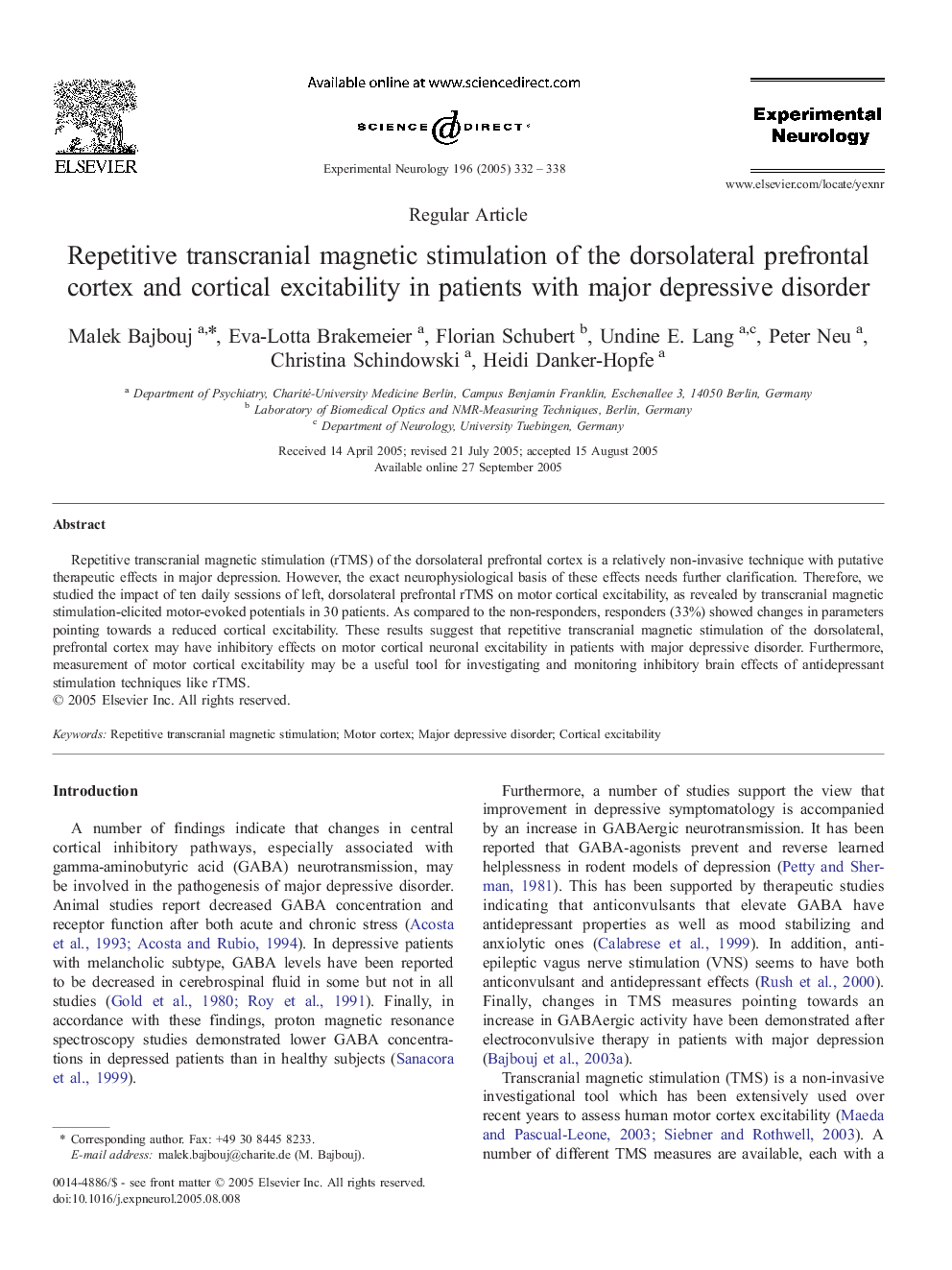| Article ID | Journal | Published Year | Pages | File Type |
|---|---|---|---|---|
| 9191911 | Experimental Neurology | 2005 | 7 Pages |
Abstract
Repetitive transcranial magnetic stimulation (rTMS) of the dorsolateral prefrontal cortex is a relatively non-invasive technique with putative therapeutic effects in major depression. However, the exact neurophysiological basis of these effects needs further clarification. Therefore, we studied the impact of ten daily sessions of left, dorsolateral prefrontal rTMS on motor cortical excitability, as revealed by transcranial magnetic stimulation-elicited motor-evoked potentials in 30 patients. As compared to the non-responders, responders (33%) showed changes in parameters pointing towards a reduced cortical excitability. These results suggest that repetitive transcranial magnetic stimulation of the dorsolateral, prefrontal cortex may have inhibitory effects on motor cortical neuronal excitability in patients with major depressive disorder. Furthermore, measurement of motor cortical excitability may be a useful tool for investigating and monitoring inhibitory brain effects of antidepressant stimulation techniques like rTMS.
Keywords
Related Topics
Life Sciences
Neuroscience
Neurology
Authors
Malek Bajbouj, Eva-Lotta Brakemeier, Florian Schubert, Undine E. Lang, Peter Neu, Christina Schindowski, Heidi Danker-Hopfe,
